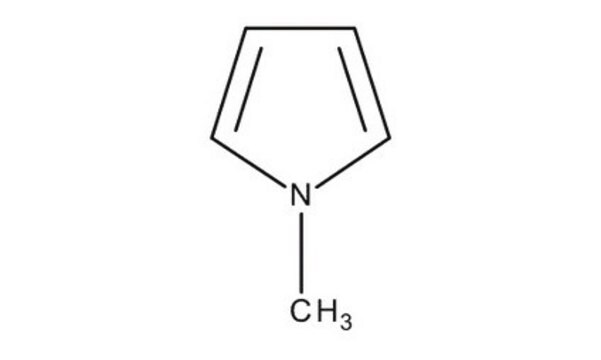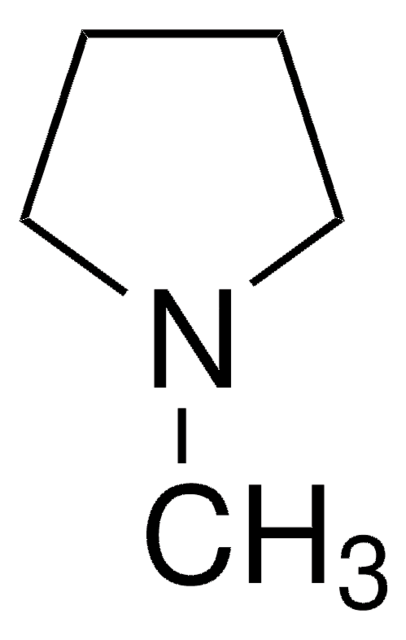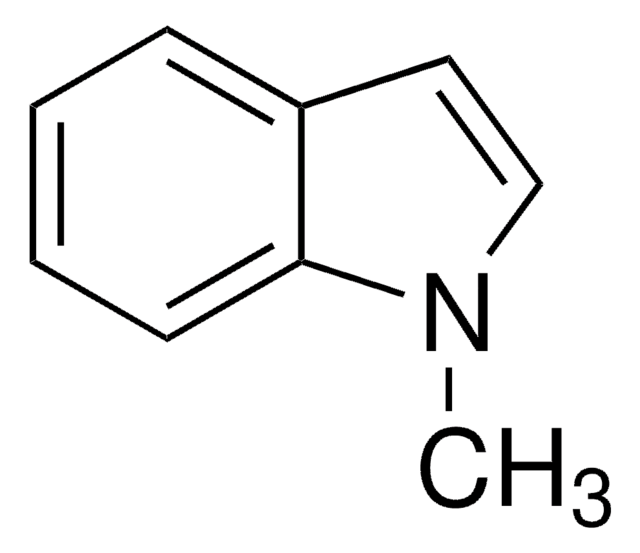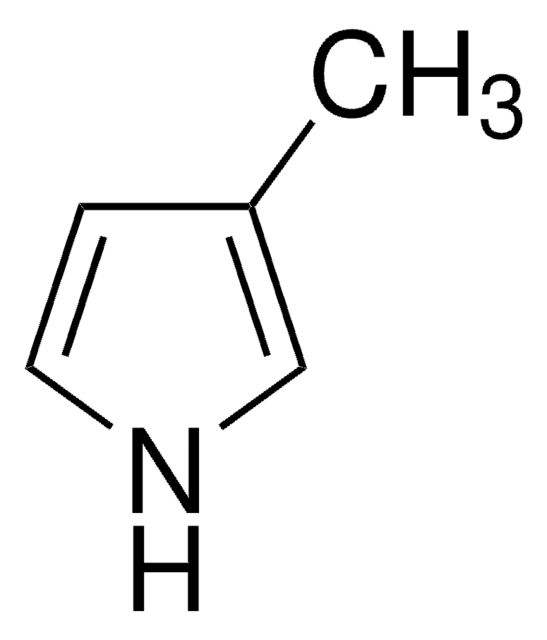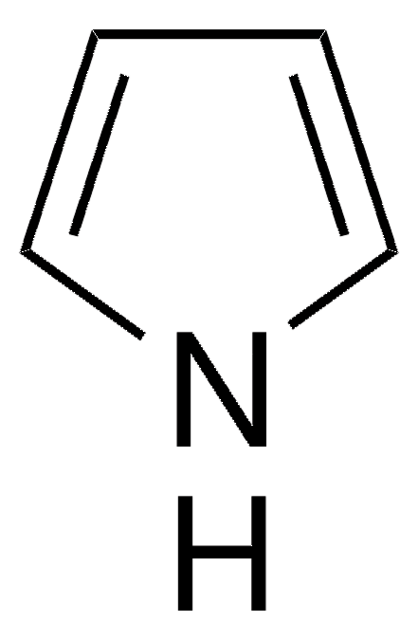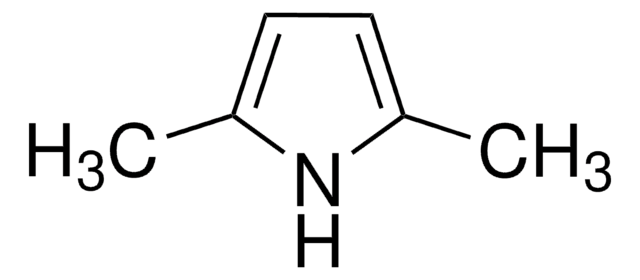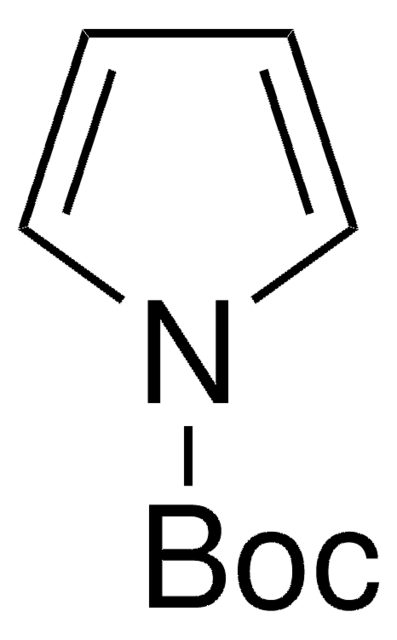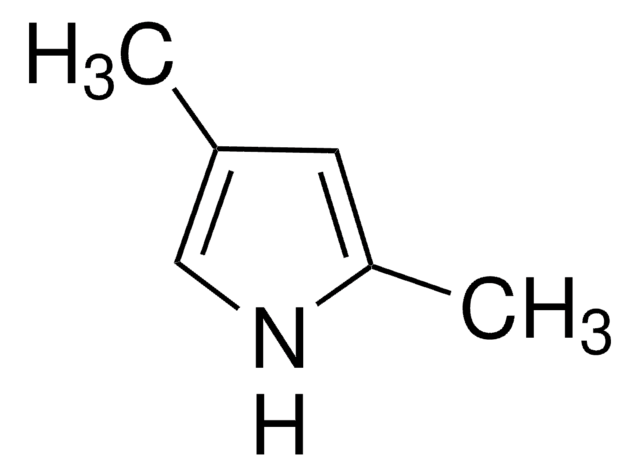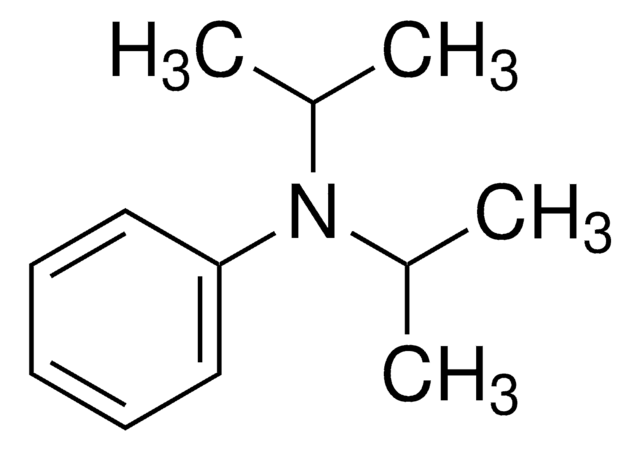M78801
N-Methylpyrrole
99%
Synonym(s):
1-Methyl-1H-pyrrole, N-Methylpyrrole
About This Item
Recommended Products
vapor density
2.8 (vs air)
vapor pressure
15 mmHg ( 20.2 °C)
Assay
99%
form
liquid
expl. lim.
6 %
bp
112-113 °C (lit.)
mp
−57 °C (lit.)
density
0.914 g/mL at 25 °C (lit.)
SMILES string
Cn1cccc1
InChI
1S/C5H7N/c1-6-4-2-3-5-6/h2-5H,1H3
InChI key
OXHNLMTVIGZXSG-UHFFFAOYSA-N
Looking for similar products? Visit Product Comparison Guide
Signal Word
Danger
Hazard Statements
Precautionary Statements
Hazard Classifications
Acute Tox. 4 Oral - Flam. Liq. 2 - Skin Irrit. 2
Storage Class Code
3 - Flammable liquids
WGK
WGK 3
Flash Point(F)
60.8 °F - closed cup
Flash Point(C)
16 °C - closed cup
Personal Protective Equipment
Choose from one of the most recent versions:
Already Own This Product?
Find documentation for the products that you have recently purchased in the Document Library.
Customers Also Viewed
Protocols
Separation of 2-Ethyl-3-methylpyrazine; 1-Methylpyrrole; 2,3-Dimethylpyrazine; 2,5-Dimethylpyrazine; 2-Ethylpyrazine, ≥98%, FG; 2,3-Diethylpyrazine; 2-Methylpyrazine; Carbon disulfide; Dimethyl disulfide; 2,6-Dimethylpyrazine
-Cymene; 2,5-Dimethylpyrrole; Acetoin, ≥96%, FCC, FG; 2,5-Dimethylpyrazine; 2,6-Dimethylpyrazine; 2-Ethylpyrazine, ≥98%, FG; 2,3-Dimethylpyrazine; 4-Heptanone; 3-Ethylpyridine; 2,3,5-Trimethylpyrazine; Furfural; Pyrrole; Furfuryl acetate; Linalool; Linalyl acetate; 5-Methylfurfural; γ-Butyrolactone; 2-Acetyl-1-methylpyrrole; Furfuryl alcohol; 2-Acetylpyrrole; Pyrrole-2-carboxaldehyde
Our team of scientists has experience in all areas of research including Life Science, Material Science, Chemical Synthesis, Chromatography, Analytical and many others.
Contact Technical Service